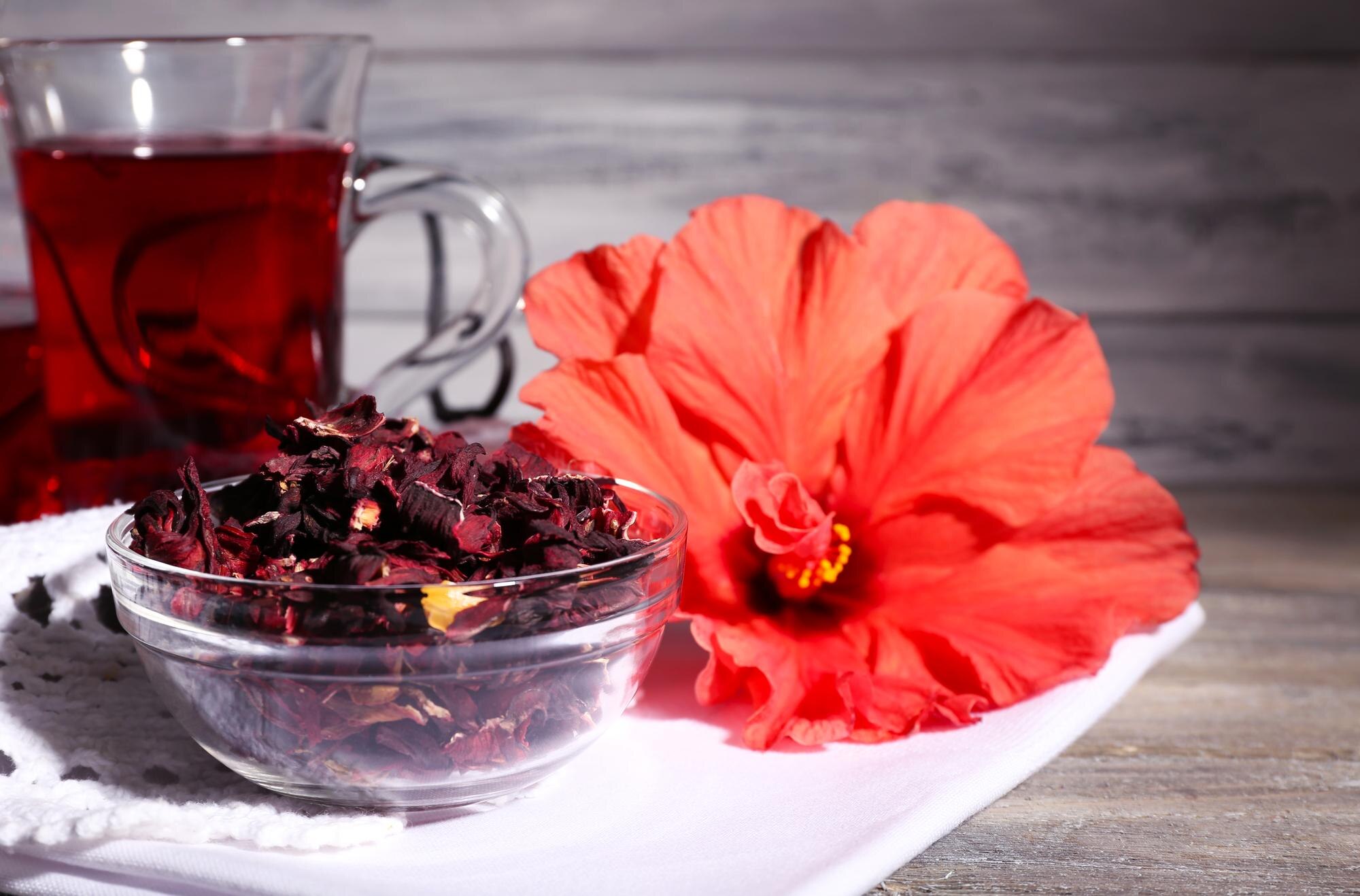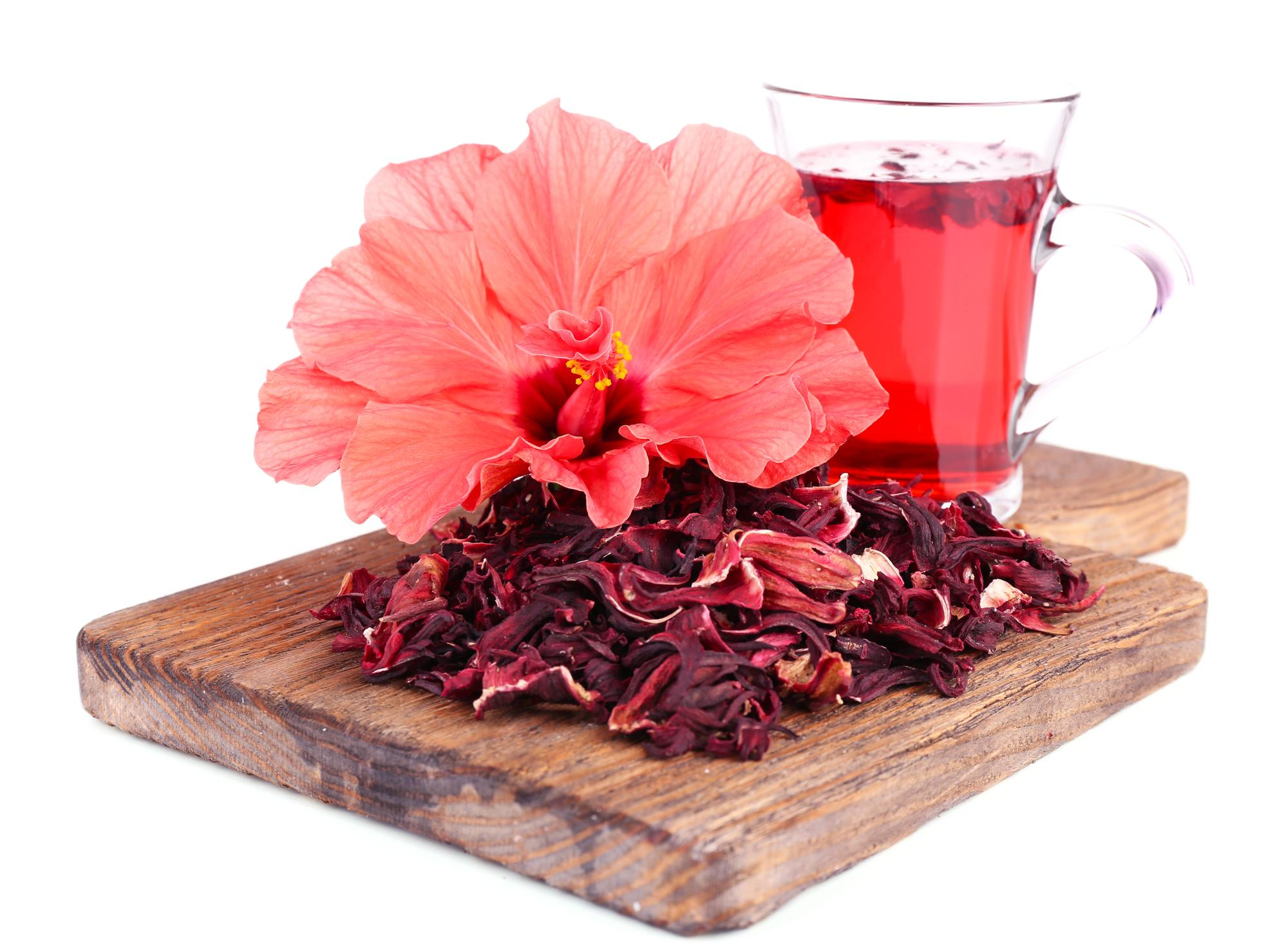Hibiscus is not just a pretty, colourful flower to look at! It is a powerful beauty ingredient that helps promote faster hair growth.
Folks have been using this for centuries to promote healthier, thicker hair. It is a natural remedy that nourishes your scalp, strengthens your hair follicles, and improves hair thickness.
This guide on hibiscus benefits for hair will help you explore the cooling properties of hibiscus, which make it the preferred herb for treating hair fall and regrowth-related problems.
Is Hibiscus Good for Hair Growth?

Yes, hibiscus is indeed a great option for promoting hair growth. The terms hibiscus and hair growth are two sides of the same coin to address the issue of hair fall :
- It contains a high concentration of vitamin C, which gives a boost to collagen production, a protein that helps to strengthen hair.
- It also has anti-inflammatory properties to help soothe an itchy, flaky scalp. It can also effectively tackle issues like dryness and dandruff.
- Some studies even suggest that you can get rid of bald patches through hibiscus flowers.
- It is packed with amino acids that produce the structural protein called keratin -the foundation block of hair.
Thus, hibiscus is a natural herb known for its potential to strengthen, nourish, and bind the hair roots, and make them less susceptible to breakage or damage.
10 Hibiscus Benefits for Hair
Hibiscus is known for its numerous benefits for hair, including promoting growth, preventing hair loss and premature graying, and improving hair texture and shine. It can also help with dandruff, an itchy scalp, and split ends.
Here are 10 hibiscus benefits for hair:
1. Promotes Hair Growth: Hibiscus contains amino acids that nourish hair follicles, stimulating growth and potentially helping with hair thinning.
2. Prevents Hair Loss: By strengthening hair roots and follicles, hibiscus can help reduce hair fall and breakage.
3. Condition Hair: Hibiscus acts as a natural conditioner, leaving hair soft, smooth, and manageable.
4. Treats Dandruff: The antifungal and antibacterial properties of hibiscus can help combat dandruff and soothe an itchy scalp.
5. Prevents Premature Graying: Hibiscus can help to maintain the natural pigment of hair, potentially delaying the onset of graying.
6. Adds Shine and Luster: Hibiscus can help restore the hair’s natural shine and luster, making it look healthier and more vibrant.
7. Strengthens Hair: The nutrients in hibiscus, like vitamin C and amino acids, strengthen hair strands and reduce breakage.
8. Moisturizes Hair: Hibiscus helps retain moisture, preventing dryness and promoting healthy hydration.
9. Soothes the Scalp: Hibiscus’s anti-inflammatory properties can help soothe and calm irritated or itchy scalp conditions.
10. Controls Split Ends: By strengthening and conditioning the hair, hibiscus can help prevent and repair split ends.
Effective Hibiscus Uses for Hair Growth

How to use hibiscus for hair growth is a frequently asked question of people wanting to use hibiscus-infused hair care products. Here’s a step-by-step guide on how to use hibiscus for hair growth :
1 Hibiscus Hair Oil
Hibiscus oil helps rejuvenate the scalp. You can apply it 3 times a week for improved blood circulation and deep nourishment.
Here is a step-by-step guide to make hibiscus oil for hair
- To make hibiscus oil at home, you need 8 hibiscus flowers, 8 hibiscus leaves to grind them into a smooth paste.
- Warm a cup of coconut oil and mix the paste with it.
- Heat the mixture together and allow it to cool down.
- Voila! The hibiscus oil is ready to use. Then, massage the oil on your scalp for 10 minutes and let it remain close to about 30 minutes for best results.
- Rinse off scalp and hair using a mild cleanser.
- Store the remaining hibiscus oil for future use.
2 Hibiscus Hair Shampoo
Thinking about how to apply hibiscus on hair for gentle cleansing? The best remedy or answer lie with applying hibiscus-infused shampoo. Due to the shampoo’s lather producing nature, you can easily incorporate hibiscus leaves and flowers into shampoos. Hibiscus-infused natural shampoos cleanse the hair without robbing your hair of its natural oils.
Similar to oil, you can prepare hibiscus extract shampoo at home.
- You need 15 hibiscus leaves and 5 hibiscus flowers.
- Steep the leaves and flowers in boiling water and then grind them to make a fine paste.
- Add gram flour to the paste to prepare an organic shampoo.
3 Hibiscus Tea Rinse
First of all, prepare hibiscus tea with the help of hibiscus flowers and water. Wait for the tea water to cool down completely. Apply the tea water as a final rinse after you shampoo your hair. This stimulates hair growth by adding shine to hair.
4 ) Hibiscus Hair Mask
Hibiscus hair mask is the perfect remedy if you are looking for how to apply hibiscus for hair growth and to stop hair baldness. The process involves preparing a paste through grinding 6-8 hibiscus flowers and leaves. Further, mix the paste with coconut milk or yogurt and apply to your scalp and hair.
DIY Uses Of Hibiscus For Preventing Dandruff, Itchy Scalp, Split Ends, Premature Greying.
In addition to shampoos, conditioners, and hair masks, you can also apply DIY hair treatments to prevent issues like dandruff, an itchy scalp, or more.
| DIY Hibiscus Method | Ingredients | Method | Benefits | Frequency |
| DIY hair pack for dandruff. | Fenugreek seeds ( 1 tbsp) water ( 1.5 cups ) Buttermilk (1/ 2 cup). |
Make a paste with the three ingredients and apply to the scalp. | Hydrates the scalp, reduces dandruff. | Once a week. |
| DIY hair pack for split ends | Crushed hibiscus petals (1 cup) , coconut milk, honey, aloe vera, and yogurt. | Blend all the stated ingredients into a smooth paste and apply. | Prevents hair-splitting and breakage due to dryness. | 1 time a week. |
| DIY natural hair colour | Water (2 cups) , hibiscus flower petals ( 1 cup) | Steep the petals in hot, boiling water. Strain the cool water for use on clean, dry hair. | Acts as a grey hair mask with a reddish tint. | Once a week or once every 2 weeks. |
| DIY hair mask for itchy scalp. | Neem leaves ( handful), hibiscus leaves ( handful), water. | Grind the ingredients into a paste and apply to the scalp. | Weekly basis. | Helps relieve scalp irritation. |
More Information For You: Hibiscus Benefits for Skin
Conclusion
Therefore, hibiscus hair benefits indicate that hibiscus flowers are a fantastic natural solution for promoting healthy, nourished hair. Regardless of which DIY treatment or hair care products you use, including this vibrant red flower can cause silky, soft hair and a healthier scalp.
While applying hibiscus helps prevent hair breakage and improve shine, the results may differ according to hair type. As everyone’s hair is different, it is recommended to perform a patch test before applying any new hair product or its DIY methods.
FAQs
Does hibiscus help in hair growth?
Yes, hibiscus helps with hair growth. It is rich in vitamins and amino acids that nourish the scalp, strengthen hair follicles, and promote hair growth.
What are the hibiscus hair mask benefits?
The hair mask benefits include strengthening hair, promoting hair growth, and enhancing hair health.
How to use hibiscus for hair fall?
To effectively use hibiscus for hair fall, apply it on your hair as oil, hair masks, and even hair rinse.
What is the best method to use hibiscus for hair loss?
To use hibiscus effectively for hair loss, create a hair mask by grinding fresh hibiscus leaves and petals into a paste and combining them with aloe vera gel and yogurt.
For how long should I leave hibiscus on my hair?
The typical time for which you can leave hibiscus hair mask or oil on your hair is 30 minutes to an hour.
Which color hibiscus flower is good for hair?
Red hibiscus flowers are good for hair. Packed with amino acids, they can help stimulate hair follicles and promote hair growth.
What is the side effect of applying hibiscus to hair?
Some potential side effects include allergic reactions, scalp irritation, dryness, and temporary hair staining.
Is It possible to spray hibiscus water on hair every day?
Yes, you can typically spray diluted hibiscus water on your hair daily as a leave-in treatment or toner.
Does hibiscus cause dryness in hair?
Yes, hibiscus containing mucilage may have a drying effect on some hair types or those with already dry hair.
Does hibiscus make hair black?
No, hibiscus does not make hair black. It can, however, add reddish highlights to hair, which may look darker on certain hair shades.